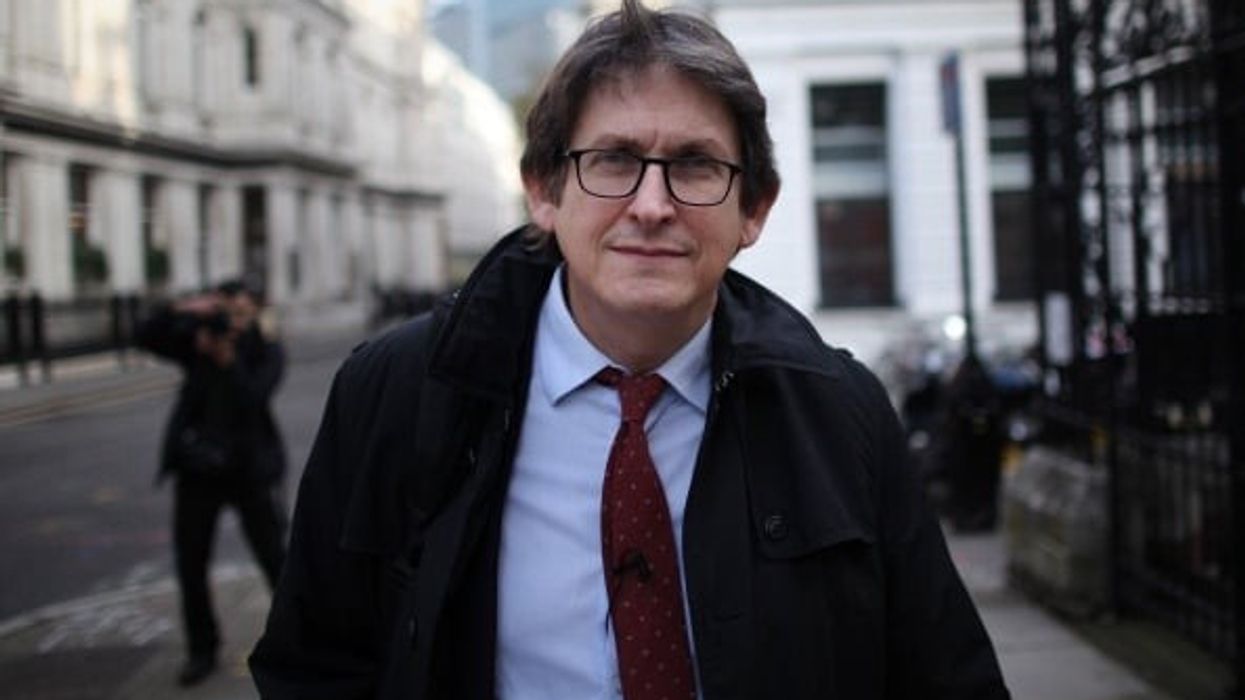By Amit Roy
ALAN RUSBRIDGER, who was editor-in-chief of the Guardian from 1995- 2015 and is now principal of Lady Margaret Hall, Oxford, has written a book on journalism in which he has pointed out the consequences of a lack of ethnic diversity in the media.
For example, in writing about xenophobia in News: And How to Use it, he comments on the prevalence of racist stereotyping of Muslims, and draws attention to “a lack of newsroom or management diversity that might challenge those perceptions”.
He also says: “The global anger aroused by the killing of George Floyd in Minneapolis in May 2020 led to a period of intense reflection about the lack of diversity in the western media. But more than one commentator expressed scepticism about companies which had hitherto done little to promote diversity suddenly embracing the optics of being seen to say the right thing. A black square on Instagram was an inexpensive gesture.”
Rusbridger quotes from a column written by Nesrine Malik in the Guardian three weeks after Floyd’s death, in which she said: “It is not just the tabloids. From the broadsheets to the BBC, the British press has stoked racism and xenophobia, cynically exploited them for clicks and eyeballs – or hidden behind cowardly equivocation about the sacred right of activists to be heard in weekly columns.
“And everyone involved is still getting away with it. Editors are still working with people who think Black Lives Matter has a ‘racist agenda’ and are telling themselves free speech requires nothing less.”
Unlike other former editors, Rusbridger hasn’t written a personal diary of his long stewardship of one of Britain’s most distinctive left-wing newspapers, which has a big global online following because it hasn’t so far disappeared behind a pay wall. Instead, he has used his experience to write a thought-provoking A-to-Z of journalism, offering his admittedly subjective reflections on, say, A for accuracy, and B for bias and bribery.
B is also for Brexit, on which he says the British public was never given an honest assessment of the pros and cons of EU membership: “Public opinion has been shaped over decades of being starved of any positive reasons to belong in Europe.”
The book has C for celebrity, cliché and clickbait; E for experts; F for fact-checkers and fake news; M for mistakes and Rupert Murdoch; P for power without responsibility; and so on through to Z for generation Z or zoomers.
In the preface, Rusbridger begins: “Who on earth can you believe any more?
“I am writing this at the peak – or so I hope – of the most vicious pandemic to have gripped the world in a century or more. The question of what information you can trust is, all of a sudden, a matter of life and death.”
In J for Journalist, he asks: “Who or what is a journalist? The question becomes harder, not easier to answer the more other people do stuff that looks and feels like journalism, and the more that journalism itself dilutes the clear purposes and methods which would make definitions simpler.”
This is worth cross-referencing with M for Mistakes: “Journalism is riddled with errors. The work is generally done at speed, and often done in the dark. Some people will try to help a reporter get at the truth, but many will do their best to confound them. They will conceal things, lock them away, mislead, dissemble and lie. There is, for those with the resources, an armoury of law to block an inquiring news hound.”
He reckons it is best to own up to mistakes and be up front about correcting them because “our readers are not stupid. They know that journalism aspires to be a perfect representation of the truth, but is almost always bound to fall short. If we levelled with them (and corrected our mistakes), they would – so the theory goes – trust us more.”
R is Royal Coverage. This is a very important area – editorially and commercially – for British newspapers, although the comings and goings of the royal family are usually treated like a “soap opera”.
“Out of any beat, royal reporting is a world almost devoid of open or named sources. ... we have to take it on trust that here are legions of ‘aides’, ‘palace insiders’, ‘friends’ and ‘senior courtiers’ constantly WhatsApping their favourite reporters with the latest gossip.”
Rusbridger makes the point: “Britain’s royal family is both the best known and one of the most elusive institutions in the western world for journalists to cover.
It doesn’t look as though the problem of racist reporting is going to be solved until there is diversity, not only among reporters, but also among decision makers. And the problem is not a new one.
Rusbridger recalls: “In 1847, a Times leader article addressed the hot migration topic of the day. ‘Ireland is pouring into the cities, and even more into the villages of this island, a fetid mass of famine, nakedness and dirt and fever,’ it said.”
He goes on: “After the Second World War, another dilemma: dark-skinned colonials, many of whom had been part of the war effort, came to Britain by sea. ‘Thirty thousand Colour Problems,’ pronounced the Picture Post.”
Writing of recent coverage, he notes: “Now consider the Daily Mail in 2015 and its publication of an image by its acclaimed cartoonist Mac, depicting Muslims and other refugees who might head to Britain as a horde of rats.
“Skip to 2017 when the Spectator published what Ipso (Independent Press Standards Organisation) later ruled was a ‘significant inaccuracy’ in its claim that ‘there are an estimated 32,000 Muslims eager to commit the next terror atrocity’.”
Rusbridger says: “The debate as to whether the media shapes or follows public opinion seems especially pertinent with regard to xenophobia. It raises questions as to the function and aspirations of print and broadcast media.”
News: And How to Use it by Alan Rusbridger, Canongate; £18.99.




